
The KL2 is a Mentored Career Development Award. The award is designed to support junior faculty in the translational sciences supported by NJ ACTS. The program will provide training in clinical and translational research and career development. Awardees pursue mentored research projects and didactic and experiential training in clinical and translational science. Questions? Please email Ms. Tracey Sharp, Program Administrator.
Click Here to Skip to How to Become a KL2 Scholar
NJ ACTS KL2 Scholars (2023-2024)
Chosen from a pool of 15 applicants, our four third cohort scholars are:
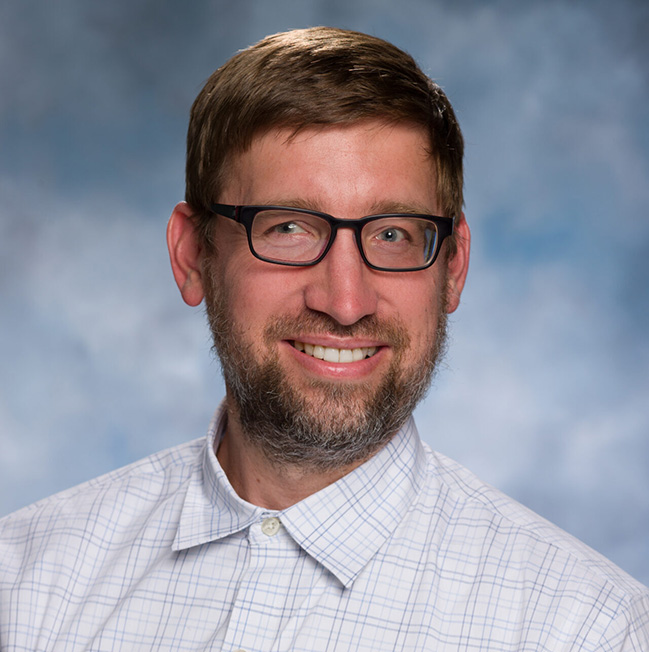
Anthony Deo, MD, PhD
Anthony Deo, MD, PhD, Assistant Professor
Rutgers Robert Wood Johnson Medical School
[click for bio]
Department of Psychiatry, Rutgers Robert Wood Johnson Medical School
Department of Psychiatry, Rutgers Robert Wood Johnson Medical School
Project: Utilizing natural language processing to identify language biomarkers unique to childhood onset psychosis
“The KL2 award will provide me with both the time and support critical to advance my research career along the path to independence”.
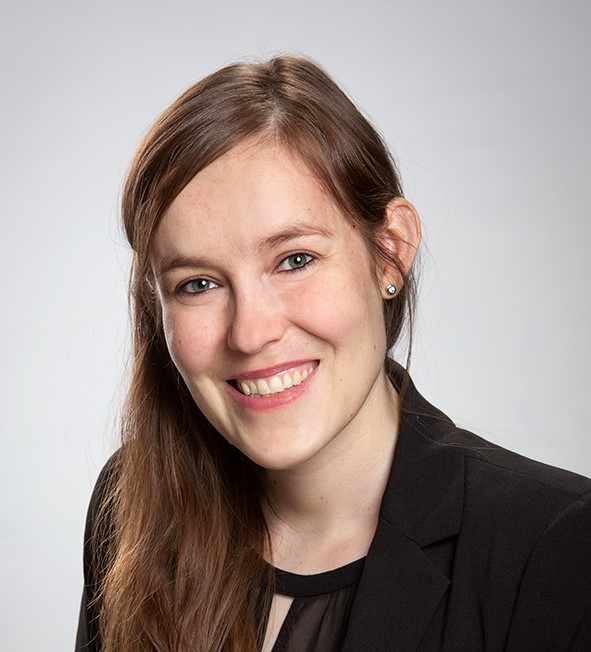
Elisa Kallioniemi, PhD
Elisa Kallioniemi, PhD, Assistant Professor
New Jersey Institute of Technology
[click for bio]
Biomedical Engineering, New Jersey Institute of Technology
Project: Brain stimulation/neurophysiological methods
“With the support of the KL2 award, I can dedicate myself to professional growth, leverage pilot data to secure research grants, foster numerous collaboration opportunities, and establish a cutting-edge research laboratory”.
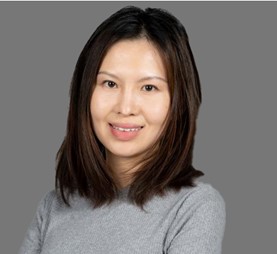
Yingci Liu, DDS, MS
Yingci Liu, DDS, MS, Assistant Professor
Rutgers School of Dental Medicine
[click for bio]
Department of Pathology, Laboratory Medicine and Radiology, Rutgers Robert Wood Johnson Medical School
Co-Mentor: Cecile Feldman, DMD, MBA, Dean and Distinguished Professor
Rutgers School of Dental Medicine
Project: A deep learning approach to predicting disease progression in oral dysplasia and early-stage malignancy
“The KL2 Career Development Award will provide me with invaluable protected time and expert mentorship, enabling me to concentrate on enhancing my research training and productivity”.
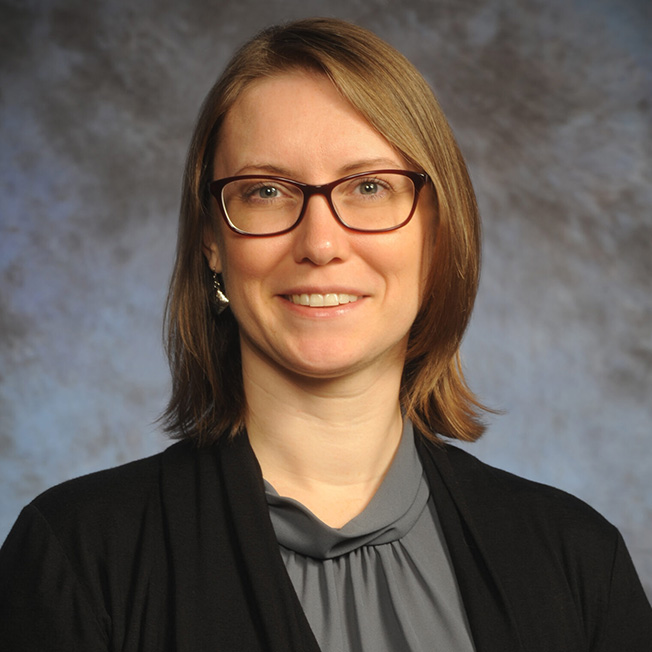
Kristine Schmitz, MD, FAAP
Kristine Schmitz, MD, FAAP, Assistant Professor
Rutgers Robert Wood Johnson Medical School
[click for bio]
Mentor: Nancy E. Reichman, PhD, Professor of Pediatrics
Rutgers Robert Wood Johnson Medical School
Co-Mentor: Lawrence C. Kleinman, MD, MPH, Professor and Vice Chair for Academic Development
Department of Pediatrics, Rutgers Robert Wood Johnson Medical School
Project: Father’s Mental Health and Their Children’s Health and Development
“The KL2 award offers me the chance to build a strong research foundation and build collaborations that support my transition from clinical work to physician researcher”.
NJ ACTS KL2 Scholars (2021-2023)
Chosen from a pool of 10 applicants, our four second cohort scholars are:
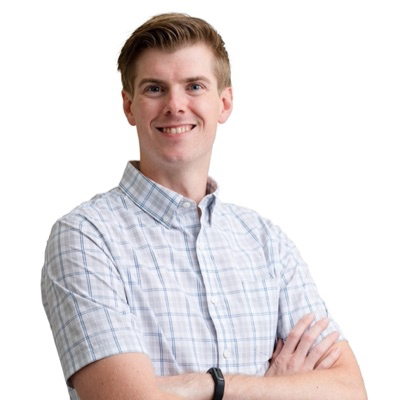
Jonathan Grasman, PhD
Jonathan Grasman, PhD, Assistant Professor
New Jersey Institute of Technology
[click for bio]
Project: Engineering aligned neuromuscular junctions to enhance repair after volumetric muscle loss
“The KL2 Program allows me to have protected time to focus on writing manuscripts with my students, collecting pilot data, and preparing R01 submissions.”
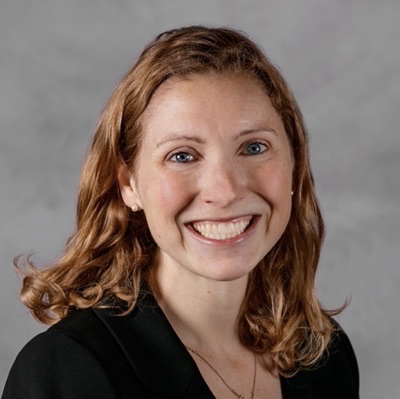
Sara Heinert, PhD, MPH
Sara Heinert, PhD, MPH, Assistant Professor
Rutgers Robert Wood Johnson Medical School
[click for bio]
Mentor: Shawna Hudson, PhD, Professor
Family Medicine and Community Health, Rutgers Robert Wood Johnson Medical School
Project: Development and Implementation of a youth-led education digital badge to improve blood pressure for hypertensive adults who present to the emergency department
“The KL2 award has been a catalyst for mentorship and networking with new collaborators to lay a solid foundation for larger funding opportunities.”
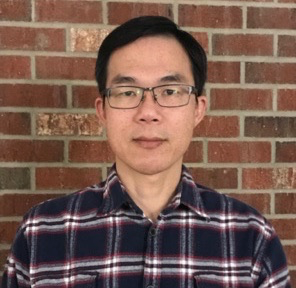
Tsung-Po Lai, PhD
Tsung-Po Lai, PhD, Assistant Professor
Rutgers New Jersey Medical School
Mentor: Daniel Notterman, MD, Professor
Molecular Biology, Princeton University
Co-Mentor: Abraham Aviv, MD, Professor
Center of Human Development and Aging, New Jersey Medical School
Project: Telomere length and COVID-19 outcomes in hematopoietic cell transplant recipients
“The KL2 program provides me the opportunity to establish myself and achieve research independence in the translational sciences.”
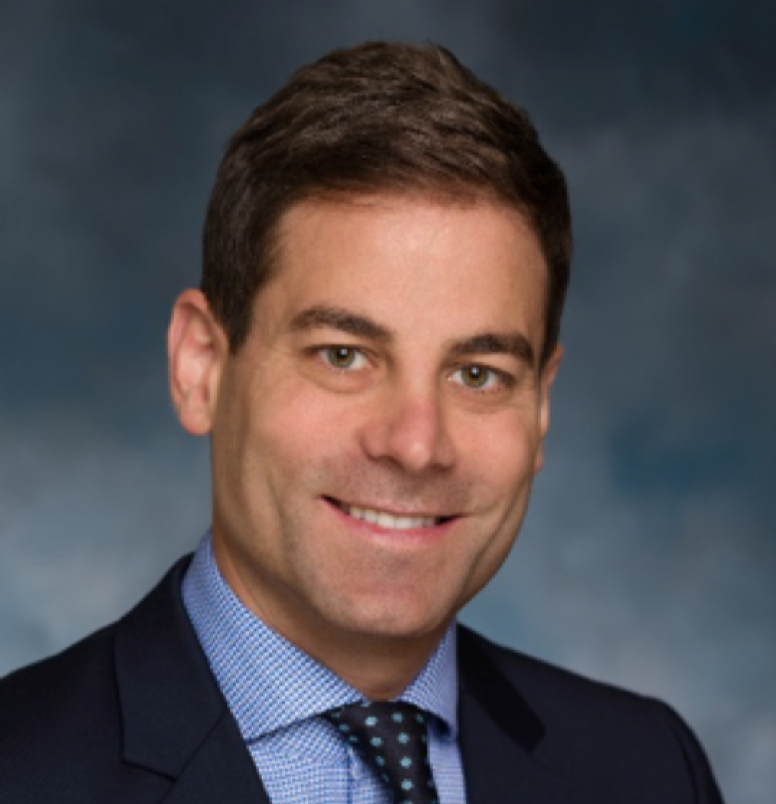
Gregory Peck, DO, MPH
Gregory Peck, DO, MPH, Associate Professor
Rutgers Robert Wood Johnson Medical School
[click for bio]
Mentor: Brian Strom, MD, MPH, Chancellor and University Professor
Rutgers Biomedical and Health Sciences
Project: New Jersey historical population cohort study: The rate of mortality before and after the 2014 Medicaid expansion in those with diagnosed symptomatic gallstone disease
“The KL2 community provides a laboratory using inclusion as its catalyst. Here, I am welcome to cultivate a new research career mainly through my learned trust of able mentors who patiently guide a very personalized development along a professional path less traveled by an emergency surgeon.”
NJ ACTS KL2 Scholars (2019-2021)
Chosen from a pool of 12 applicants, our four first cohort scholars are:

Qiana Brown, PhD, MPH, LCSW
Qiana Brown, PhD, MPH, LCSW, Assistant Professor
Rutgers University School of Social Work
[click for bio]
Mentor: Stephen Crystal, PhD, Board of Governors Professor
Rutgers University School of Social Work
Project: Cannabis use during preconception, pregnancy and lactation
“The protected time to conduct research and networking opportunities are invaluable in this early stage of my career.”

Chintan Dave, PharmD, PhD
Chintan Dave, PharmD, PhD, Assistant Professor
Rutgers Biomedical and Health Sciences, Ernest Mario School of Pharmacy
[click for bio]
Mentor: Soko Setoguchi, MD, DrPH, Associate Professor of Medicine and Epidemiology
Rutgers Robert Wood Johnson Medical School and Rutgers Biomedical and Health Sciences School of Public Health
Project: Hypoglycemia and hyperglycemia associated with drugs used by older adults for diabetes
“The resulting research and manuscripts from the KL2 will serve as the foundation to future R01 awards.”

Elissa Kozlov, PhD
Elissa Kozlov, PhD, Assistant Professor
Rutgers School of Public Health
[click for bio]
Mentor: Paul Duberstein, PhD, Chair and Professor
Department of Health Behavior, Society and Policy, Rutgers School of Public Health
Project: Health mindfulness to alleviate stress for caregivers of cognitively impaired older adults
“This grant has helped me meet new collaborators, which resulted in publications in new research areas and allowed me to collect pilot data for larger grant submissions.”

Ankit Shah, MD
Ankit Shah, MD, Assistant Professor
Rutgers Robert Wood Johnson Medical School
[click for bio]
Mentor: Fredric Wondisford, MD, Professor and Chair
Department of Medicine, Rutgers Robert Wood Johnson Medical School
Project: Glycerol contribution to hepatic gluconeogenesis in obesity
“The KL2 program allowed me to decrease my clinical responsibilities and focus on obtaining formal research training, conducting translational research, and submitting manuscripts and grants.”
Become a KL2 Scholar
Overview
Funded by the National Institutes of Health under its CTSA program, the KL2 is an Institutional Career Development Award, aimed at training the next generation of scientists in research relevant to human diseases and preparing them for independent research careers. The NJ ACTS KL2 is designed to identify junior faculty who are committed to academic careers and research in clinical and/or translational sciences.
Our program provides career development through research engagement, protected time, financial support, training and mentoring for young faculty committed to pursuing translational and clinical research. The overarching goal is engagement in intensive research experiences to promote a hybrid phenotype that optimally prepares individuals for independent careers in translational research.
Dummy accordion item hidden via css
Award provisions
The KL2 has the same benefits and requirements as individual K-awards from the NIH. It provides up to two years of support which includes: up to 80-90 percent protected time; funds to defray research costs: tuition support and professional travel.
Requirements and opportunities
- The KL2 program provides Scholars with an opportunity to pursue a Masters or Certificate in Clinical and Translational Sciences
- Participation in the program requires a commitment of 1-3 years beyond the two years of support from the KL2, as well as a commitment to provide follow-up information annually
- The Society of Scholars provides a community of junior faculty, fellows and postdocs with Career Development Awards and opportunities for peer mentoring and development of mentoring skills
- Each Scholar will have a primary research mentor and a mentoring committee to support their development
- Scholars are expected to present their work at the NJ ACTS annual retreat, scientific symposium or other similar venue
- KL2 Funding Opportunities
Scholar training
- Individual Development Plans (IDPs) for each Scholar will guide training and acquisition of knowledge and skills. The IDPs will include a research question, hypothesis, study design and approach, and a narrative statement of longer-term career aspirations. Scholars will also participate in a Core Curriculum, based on core competencies, as well as an elective curriculum comprised of courses appropriate to their research and level of training. Training plans include required and elective didactic programs, seminars/workshops, and other career development programs. The Core and Elective curriculum will require 5-10% of the Scholar’s time during the 2-year training period.
- Scholars can avail themselves of the resources of the NJ ACTS Core Facilities, which the program will introduce them to. As a capstone of the mentored training, Scholars will prepare applications for independent funding or for additional mentored career development.
Society of Scholars
KL2 Scholars constitute a Society of Scholars. The Society includes not only KL2-supported Scholars, but junior faculty, fellows or postdocs with active or recently completed Career Development Awards. In addition to providing a community, there are opportunities for peer mentoring and development of mentoring skills.
If you are an early stage faculty member with a K-award or equivalent and are interested in being a member of the Society of Scholars, send a cover letter and biosketch to Tracey Sharp at kl2njacts@rbhs.rutgers.edu
Academy of Mentors
Each Scholar is expected to have a primary research mentor who is a member of the Academy of Mentors, chosen for scientific achievement and track records in training/mentoring and funding. Mentors are expected to play an active role during the course of the award in fostering the applicant’s career development as a physician scientist. Mentors are expected to act as advocates for the applicant at the departmental, institutional and professional levels and provide scientific guidance for the proposed project.
Mentoring in the organizational structure of the NJ ACTS KL2 program will allow for more effective communication between basic and clinical scientists by building a community for the mentors through the Academy of Mentors, who share not only a focus on training the next generation of translational scientists but on translational research.
Primary Mentors in the Academy of Mentors are selected on the basis of the following criteria: a) alignment with the training mission; b) demonstrated excellence in investigation with an active research program in translational or clinical research; c) passion for contributing to the development of the next generation of clinical/translational scientist; d) past record of successful translational research; and e) research focus relevant to the study of scientific aspects of human diseases. Advisors are chosen based on either their clinical expertise and experience in training physicians and scientists or based on the methodological or technical expertise.
Join the Academy of Mentors
For faculty interested in joining the Academy of Mentors, please contact:
Tracey Sharp, Program Administrator, KL2 Career Development Program
Email: kl2njacts@rbhs.rutgers.edu
Scholar evaluation
- Scholar evaluation and feedback is an important component of the Program and is intended to provide positive and actionable feedback to the Scholar. Specific components include:
- The Mentorship Committee will monitor research and career progress quarterly.
- The Scholar will submit a brief written progress report of their accomplishments biannually.
- The Chair of the Scholar’s Mentorship Committee will prepare a biannual written evaluation for submission to the Executive Committee (EC).
- Concluding presentation. Eighteen to twenty months after starting the research training, scholars will discuss their research achievements in a formal oral presentation to the Mentorship Committee and EC. This presentation will enable the Committee to judge the success of the Scholar’s progress and will provide the Scholar with an opportunity to prepare for a formal presentation of work at the Scholar’s forum at the NJ ACTS Annual Research Day.
- A formal review of the Scholar will be performed and reviewed by the EC. Matriculation to the second year of the program will be contingent on
- Completion of the first year of the core curriculum.
- Successful initial and interim presentations.
- Satisfactory written evaluation by the Chair of the Scholar’s Mentorship Committee.
- Progress in, or concrete plans for preparation, of an application for additional mentored career development.
Executive Committee includes the KL2 PI and training directors
Research Training
The KL2 Program supports Scholars in developing and conducting an outstanding translational research project through strong and sustained mentoring and development of research skills through its core curriculum and electives.
Electives offered at Rutgers University include the opportunity for scholars to earn Masters Degrees or Certificates in Programs relevant to Biomedical Sciences/Clinical and Translational Research
2024 Request for Applications - 4th Cohort KL2 Scholars - Application Cycle will open in late summer/early fall 2024
The New Jersey Alliance for Clinical and Translational Science (NJ ACTS) Institutional Career Development (KL2) program will issue a solicitation for its next cohort in late August/early September 2024. Appointments would begin July 1, 2025.
Resources for Scholars
Newsletters
Rutgers Research → Sign up
NIH Extramural Nexus ‘Open Mike’ → Sign up
NIH NCATS → Sign up
NJ ACTS Newsletter Archive
NJ ACTS YouTube Channel
Learning opportunities: Join the CTSA Consortium un-meetings
On March 2, 2020, as an NCATS/CTSA travel award recipient, Qiana Brown attended the Center for Leading Innovation and Collaboration (CLIC)/CTSA “un-meeting” on lifespan and life course research hosted by the Northwestern University Clinical and Translational Sciences (NUCATS) Institute.
According to Dr. Brown: This un-meeting was nothing short of amazing. “I learned more in one day at the un-meeting (mainly due to its structure) compared to some of the typical 3- to 5-day scientific meetings I have attended. The un-meeting structure was both science-focused and action-oriented, which facilitates translational research.” The best part of the meeting was the breakout sessions held after scientific talks. In these sessions, stakeholders committed to translational science generated ideas and discussed tangible and feasible solutions to improving population health as well as research infrastructure. Often, at traditional scientific conferences, practical approaches to translating research to practice are seldom discussed and implications for practice, policy and community are presented at the end of talks seemingly as an afterthought if there is time. The un-meeting gave adequate time for science and solution-focused discussion aimed at translation, which was refreshing and appreciated. Future un-meetings should be afforded to KL2 scholars and TL1 trainees as a standard and expected part of their training, regardless of travel award status. Attending un-meetings such as the one hosted by the NUCATS Institute would greatly benefit translational scientists and those training in the field.
On September 30, 2020, Ankit Shah participated in the Center for Leading Innovation and Collaboration (CLIC)/CTSA Virtual “un-meeting” on ‘Clinical Research in the COVID-era and Beyond’, which included an eclectic group of investigators from around the country.
According to Dr. Shah: I attended the Center for Leading Innovation and Collaboration’s Un-Meeting titled “Clinical Research in the COVID-era and Beyond”. Representatives from 37 different CTSA hubs joined this virtual session discussing challenges and opportunities in clinical and translational research during the COVID era. Breakout sessions discussed optimal methods to recruit and retain study participants and how to best conduct decentralized clinical trials. Investigators also shared methods on how to collect biospecimens from subjects remotely and how to best mobilize and redeploy research coordinators during COVID surges. These are the same challenges Rutgers physicians and researchers had during the spring 2020 surge. There was a general sentiment that learning from everyone’s experience could better prepare us for any future disruptions to research.
KL2 Visiting Scholar Program
KL2 awardees from Clinical and Translational Science Centers (CTSA) present virtual lectures as part of CTSA Visiting Scholar Program.
Qiana Brown, PhD, MPH, LCSW, was invited to present at Johns Hopkins University as part of their CATAList seminar series on November 3, 2020. Dr. Brown presented her work on “Prenatal Cannabis Use: Who, When, Where, Why”.
Following her ‘visit’, Dr. Brown stated: “I think this will lead to fruitful collaborations and networking opportunities. I would encourage future KL2 Scholars to participate in the visiting professor program”
Ankit Shah, MD, was invited to present CTSA Grand Rounds at Duke University on April 9, 2021. Dr. Shah presented his work on “Glycerol as a Direct and Indirect Contributor to Glucose Production in Humans”.
Following his ‘visit’, Dr. Shah stated: “Through the CTSA Visiting Scholars Program, I presented my KL2 research at Duke University where I met with thought leaders in my field, showcased my science to them, and discussed where next to take my project. Such an exchange is vital for a junior investigator striving towards research independence by allowing me to gain national recognition and obtain valuable scientific feedback”.
Jonathan Grasman, PhD, was invited to present at The Integrated Translational Health Research Institute of Virginia on March 15, 2022. Dr. Grasman presented his work on “3D Tissue Systems to Study Tissue Innervation.”
Following his ‘visit’, Dr. Grasman stated: “Through the CTSA Visiting Scholars Program, I had the opportunity to present my KL2 and lab’s research at iTHRIV on March 15, 2022. This was an excellent networking opportunity to discuss science with my peers, and I was also able to describe the next steps of my research program with leaders in my field and obtain valuable feedback. I encourage future KL2 scholars to participate in this program.”
Gregory L. Peck, DO, MPH, FACS, was invited to present his research at the UNC – School of Medicine, North Carolina Translational and Clinical Sciences Institute on July 26, 2023. His talk was entitled, “A digestive disease requiring emergency general surgery: A surgeon scientist’s approach to prevention of morbidity and mortality from gallstone disease”.
Given Dr. Peck’s program of research — digestive disease requiring emergency surgery — he met with a multidisciplinary group assembled by the North Carolina Translational and Clinical Sciences Institute. In a 3-day event, Dr. Peck met offline with SOM faculty from the Offices of Faculty Development, Department of Surgery, Division of Acute Care Surgery, and Department of Medicine, Gastroenterology, and Gillings School of Public Health, Department of Epidemiology.
Following his ‘visit’, Dr. Peck stated: “Through the CTSA Visiting Scholars Program, I presented my KL2 research at UNC where I met with of course successful NIH funded clinical researchers, but also these same people who were thoughtful and sensitive in their approach to affirming my early research career development at Rutgers as novel in its focus on decreasing the need for emergency surgeries in the less than advantaged population.”
CONTACT US
For General Inquiries about the KL2 Program, please contact:
Tracey Sharp
KL2 Program Administrator
Email: kl2njacts@rbhs.rutgers.edu
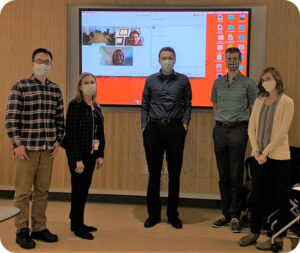
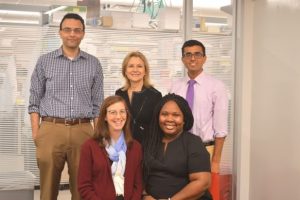
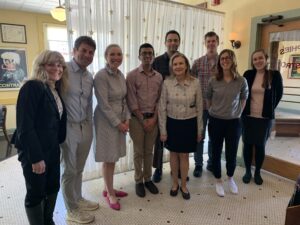
Cite it, Submit it, Share it!
Citation guidelines for trainees
If you are a trainee, please cite our CTSA training grant in any relevant publications, abstracts, chapters, and/or posters. As per the award notice, each publication, press release, or other document about research supported by an NIH award must include an acknowledgment of NIH award support and a disclaimer such as the following:
“Research reported in this publication was supported by the National Center For Advancing Translational Sciences of the National Institutes of Health under Award Number KL2TR003018. The content is solely the responsibility of the authors and does not necessarily represent the official views of the National Institutes of Health.”
Please submit your publications to PubMed Central in compliance with the NIH Public Access policy.
You can share your research updates with us by sending an email to NJACTS.Fellowship@gsbs.rutgers.edu
